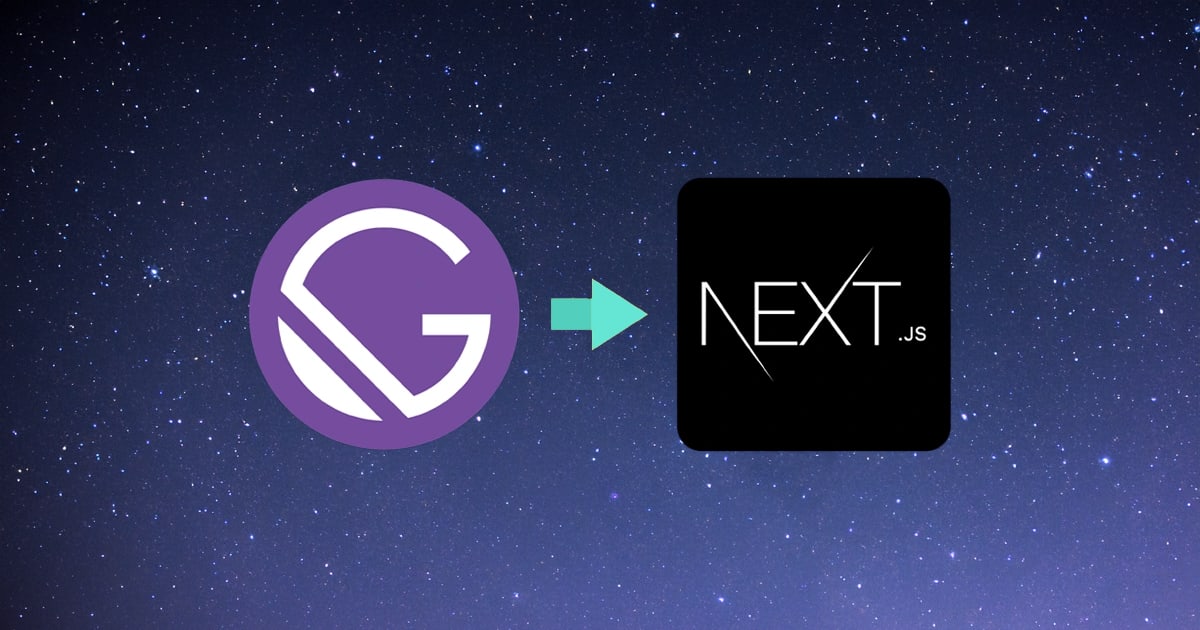
Migrating from Gatsby to Next.js (Pages Router)
title: 'Migrating from Gatsby to Next.js (Pages Router)' description: 'My journey migrating from Gatsby to Next.js' date: '2024-07-15' section: blog cover_image: 'https://res.cloudinary.com/crbaucom/image/upload/v1733973075/crbaucom-images/migrating-from-gatsby-to-nextjs-cover-image.png' tags: ['nextjs', 'gatsby', 'typescript', 'react']
I recently migrated my personal site from Gatsby to Next.js. Here's my actual experience, including the challenges I faced and how I solved them.
The Starting Point
My Gatsby site was:
- Using markdown for blog posts
- Styled with styled-components
- Using JavaScript
- Hosted on Netlify
Why I Migrated
While Gatsby served me well for years, several factors influenced my decision to migrate:
The Uncertain Future of Gatsby
In early 2023, Netlify acquired Gatsby, primarily for its Valhalla content mesh technology. Shortly after, they:
- Laid off most of the Gatsby core team
- Announced the shutdown of Gatsby Cloud (December 2023)
- Significantly reduced contributions to the open-source framework
While Netlify stated they would maintain Gatsby, the framework's future became uncertain. The once-vibrant ecosystem showed signs of stagnation:
- Plugin maintainers began abandoning their projects
- The official Discord became overrun with spam
- Issue queues grew with minimal response from maintainers
- Documentation remained outdated, still referencing the defunct Gatsby Cloud
Technical Reasons
Beyond the ecosystem concerns, I wanted to:
- Take advantage of Next.js's growing ecosystem and features
- Migrate to TypeScript
- Revamp the design
- Use a framework with active community development
The Migration Process
1. Project Setup
First, I created a new Next.js project with TypeScript:
1npx create-next-app@latest --typescript --eslint
I then added key dependencies:
1yarn add gray-matter mdx-bundler reading-time rehype-autolink-headings rehype-slug remark-gfm
2. Content Migration
The content migration was straightforward since I was already using markdown files. All I did was convert them to .mdx for enhanced functionality.
3. Fetching Data
I used @next/mdx to fetch the content from the content directory.
4. Styling
I'm still using styled-components for styling.
5. Hosting
I'm hosting the site on Netlify. I was on Gatsby Cloud, but since they have shut that down, I'm back to Netlify.
The Result
- Simpler codebase without GraphQL complexity
- TypeScript's type safety
- Active ecosystem with regular updates
Lessons Learned
- Start with a clean Next.js project rather than trying to migrate in-place
- Don't try to replicate Gatsby's features exactly - embrace Next.js's patterns
- RTFM (Read the F***ing Manual) 🤪